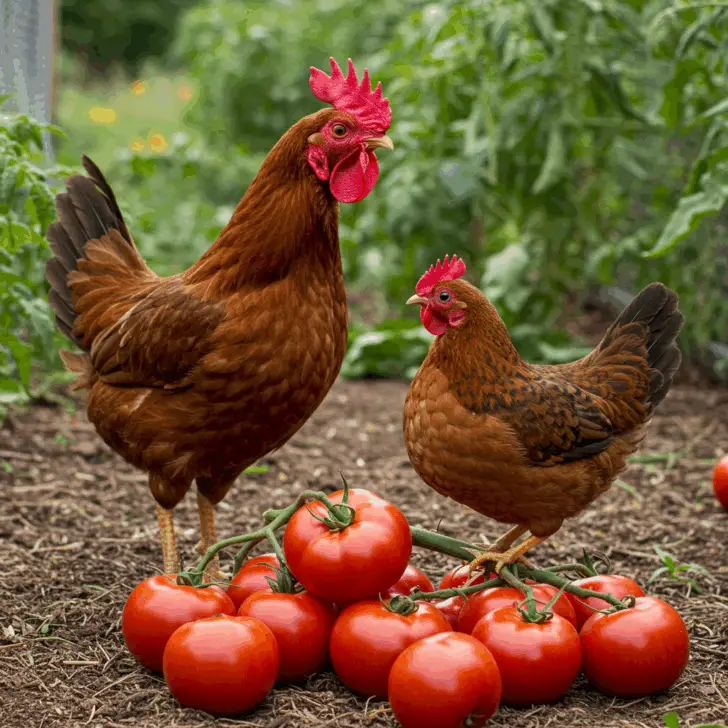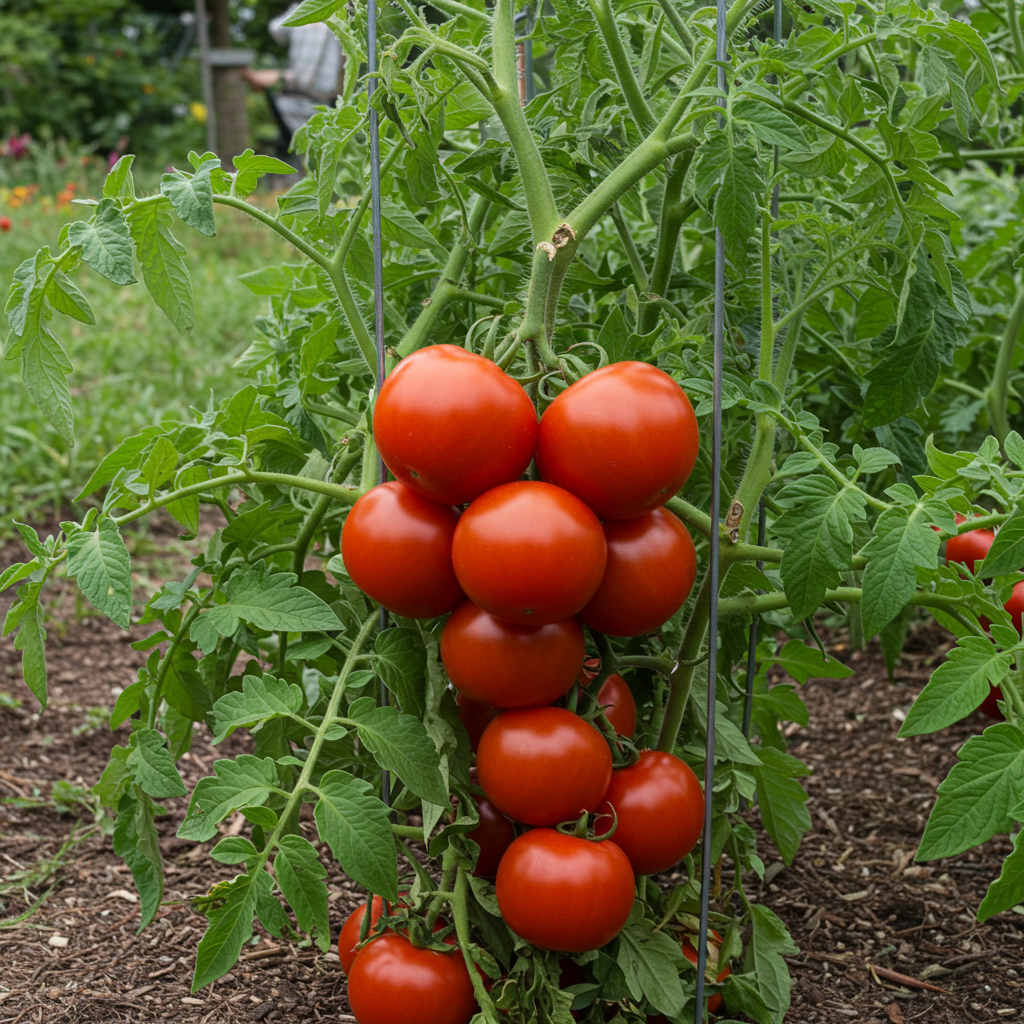This comprehensive guide explores whether tomato plants are safe or harmful for your chickens to eat. We’ll cover the benefits and risks, which parts are safe and which are toxic, and how to protect your garden from curious chickens while allowing them to enjoy the healthy snacks your tomato patch can offer.

Introduction: Chickens and Tomatoes – A Complex Relationship
Chickens are naturally curious foragers, pecking at anything that catches their eye, including your prized tomato plants. This begs the question: are tomato plants safe for your feathered friends? The answer is a bit nuanced, involving both risks and benefits. While ripe tomatoes offer some nutritional value, certain parts of the tomato plant contain toxins that can be harmful, even deadly, to chickens. Understanding this complex relationship is key to keeping your flock healthy and your garden thriving.
The Good: Nutritional Benefits of Ripe Tomatoes for Chickens
Ripe tomatoes offer some nutritional benefits to chickens. They are a good source of:
Vitamins: Tomatoes contain Vitamins A, C, and K, which contribute to a chicken’s overall health, boosting their immune system and supporting healthy bone development.
Antioxidants: Lycopene, the pigment responsible for the red color of tomatoes, is a powerful antioxidant that can help protect cells from damage.
Hydration: Tomatoes have high water content, which can be especially beneficial during hot summer months.
However, these benefits are primarily associated with the ripe fruit. The leaves, stems, and unripe fruit contain solanine, a toxic compound that poses a significant risk to chickens.
The Bad: The Dangers of Solanine
Solanine, a glycoalkaloid, is a natural defense mechanism found in members of the nightshade family, which includes tomatoes. While ripe tomatoes contain minimal solanine, the highest concentrations reside in the leaves, stems, and green, unripe tomatoes.
Signs of solanine poisoning in chickens can include:
Lethargy and Weakness: Affected chickens might appear drowsy and reluctant to move.
Loss of Appetite: A decrease in or complete cessation of eating.
Digestive Issues: Vomiting and diarrhea are common symptoms.
Neurological Problems: In severe cases, tremors, paralysis, and even death can occur.
If you suspect your chickens have ingested toxic parts of the tomato plant and exhibit these symptoms, contact a veterinarian immediately.
Protecting Your Tomato Plants and Your Chickens
Balancing the potential benefits of ripe tomatoes with the risks of solanine poisoning requires a proactive approach:
Fencing: Erecting a fence around your tomato plants is the most effective way to prevent chickens from accessing them. Consider using chicken wire or other suitable fencing materials.
Raised Beds or Containers: Planting tomatoes in raised beds or containers makes them less accessible to foraging chickens.
Supervised Access: If you choose to allow your chickens limited access to ripe tomatoes, supervise them closely and remove any uneaten fruit and plant debris promptly.
Alternative Treats: Offer your chickens a variety of other healthy treats, such as fruits and vegetables scraps, diverting their attention away from your tomato plants. (Internal link to article: “Healthy Treats for Your Backyard Chickens”) (If such an article exists on your site).
Pruning: Regularly prune suckers and low-hanging branches to further minimize chicken access to the most toxic parts of the plant.
What about Other Nightshade Plants?
Other members of the nightshade family, such as potatoes, eggplants, and peppers, also contain solanine. Similar precautions should be taken with these plants. Green potatoes and potato skins, in particular, pose a significant risk to chickens. (External Link: https://www.poultrykeeper.com/chickens/chicken-health/can-chickens-eat-potatoes/)
FAQs:
Q: Can chickens eat cherry tomatoes?
A: Yes, ripe cherry tomatoes are generally safe for chickens in moderation.
Q: How many tomatoes can a chicken eat?
A: Tomatoes should only be given as an occasional treat, not a staple food. A few ripe tomatoes a week are sufficient.
Q: What should I do if my chicken eats a tomato leaf?
A: Monitor your chicken closely for any signs of distress. If you observe any symptoms of solanine poisoning, contact your veterinarian immediately.
Q: Can chickens eat tomato seeds?
A: Yes, the seeds of ripe tomatoes are generally safe for chickens to eat.
Conclusion: A Balanced Approach
While ripe tomatoes offer some nutritional benefits for chickens, the potential dangers of solanine poisoning from the leaves, stems, and unripe fruit necessitate a cautious approach. By understanding the risks and implementing appropriate preventative measures, you can ensure the health and well-being of your flock while still enjoying a fruitful harvest from your tomato garden. If you have any doubts or concerns, consulting with a veterinarian or a poultry specialist is always recommended. A balanced approach, combining vigilance with the provision of alternative healthy treats, will allow you to keep both your chickens and your tomato plants thriving.

